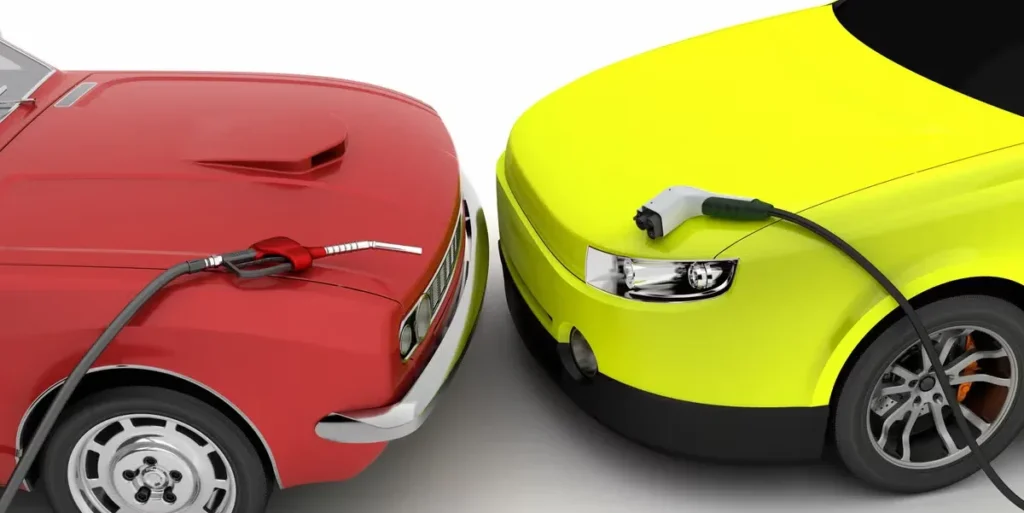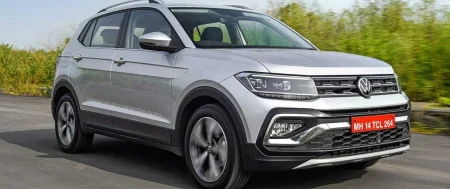The age-old debate of electric cars versus gas cars often circles around various aspects, from performance to cost. One question that frequently pops up is whether electric cars are heavier than their gasoline counterparts. It’s a question with many facets, touching on the components, design, and even the future of automotive technology. So, let’s dive in and unpack this intriguing topic.

Table of Contents
Understanding Vehicle Weight
To get a clear picture of whether electric cars are heavier than gas cars, we need to first understand what makes up a vehicle’s weight. A car’s weight is influenced by its components, materials, and design. For instance, a larger engine or more robust chassis will add more weight. Similarly, the type of power source – whether electric or gasoline – plays a crucial role in determining the overall weight of the car.
Components of Electric Cars
Electric cars are powered by batteries, which are often much heavier than traditional gas engines. Here’s a breakdown of key components contributing to an electric car’s weight:
- Battery Packs: These are the primary culprits in adding weight to electric vehicles. A standard electric car battery can weigh between 800 to 1,200 pounds, depending on its size and capacity.
- Electric Motor: While generally lighter than gas engines, the electric motor still contributes to the overall weight.
- Regenerative Braking Systems: These systems add a bit more weight but offer the benefit of increasing efficiency.
Components of Gas Cars
On the flip side, gas cars have their own set of components contributing to their weight:
- Internal Combustion Engine (ICE): Gasoline engines are typically heavier due to their complex design and the need for robust materials to handle combustion.
- Fuel Tanks: Although not as heavy as electric batteries, fuel tanks do add to the overall weight.
- Exhaust Systems: These systems are also a notable contributor to the weight of a gas vehicle.
Suggested Blogs: Upcoming 2025 Electric Cars in the Us (bestgaddi.com)
Battery vs. Engine Weight
When comparing the weight of an electric car battery to that of a gas engine, the battery usually comes out as the heavier component. A typical electric car battery can be up to three times heavier than a conventional gas engine. This significant weight difference can make electric cars heavier overall, especially when compared to smaller, more efficient gas engines.
Material Differences
Electric cars often use materials like aluminum and high-strength steel to offset the added weight of their batteries. These materials help reduce the weight of the car’s body and frame. Gas cars, however, might rely more on traditional steel, which is heavier. As a result, while electric cars might be heavier due to their batteries, the use of lighter materials can help balance this out.
Design and Structure
The design of a vehicle also plays a crucial role in its weight. Electric cars are often designed with a focus on aerodynamics and efficiency, which can result in a different structural layout compared to gas cars. For example, the placement of the battery pack in an electric car typically lowers the centre of gravity, which can improve handling but also adds to the vehicle’s weight.
Impact of Weight on Performance
Weight has a significant impact on a vehicle’s performance. Heavier vehicles generally require more energy to accelerate, which can affect fuel efficiency or battery range. Electric cars, despite their heavier batteries, often benefit from advanced technologies that optimize energy use, potentially offsetting some of the performance drawbacks associated with increased weight.
Suggested Blogs: Kick Kennedy’s Top Luxury Cars in 2024
Safety Considerations
From a safety perspective, the weight of a vehicle can play a dual role. Heavier vehicles often perform better in crash tests due to their mass, which can provide more protection in accidents. However, this added weight can also affect braking distances and handling, which is a crucial consideration for both electric and gas cars.
Environmental Impact
Weight directly impacts a car’s energy efficiency. Heavier cars generally consume more energy, whether it’s fuel for gas cars or electricity for electric cars. However, advancements in electric vehicle technology are making them increasingly efficient, reducing the environmental impact despite their heavier batteries.
Cost Implications
The weight of a vehicle also has cost implications. Heavier cars may be more expensive to manufacture due to the materials and technology required. Additionally, higher weight can lead to increased fuel or energy consumption, affecting the overall cost of ownership.
Consumer Preferences
When it comes to consumer preferences, the weight of a vehicle can influence choices. Some buyers might prefer the robust feel of a heavier vehicle, while others might prioritize the efficiency and performance benefits of a lighter car. The growing interest in electric vehicles is leading to innovations that aim to balance weight with efficiency and performance.
Future Trends
Looking ahead, the automotive industry is rapidly evolving. Innovations in battery technology, materials science, and vehicle design are likely to influence the weight dynamics of both electric and gas cars. For instance, advancements in lightweight materials and more efficient battery designs could help mitigate some of the weight disadvantages currently associated with electric vehicles.
Suggested Blogs: Best 5 Electric SUV 2024 in the US
The electric car revolution is in full swing, transforming the automotive landscape with each passing year. As technology advances and environmental concerns grow, electric vehicles (EVs) are becoming more than just a niche option—they’re shaping the future of personal and commercial transportation. In this article, we’ll explore the exciting developments and trends that are poised to redefine the future of electric cars.
The Future of Electric Cars: What’s Next?
Advancements in Battery Technology
One of the most significant barriers to widespread EV adoption has been battery technology. However, innovations are on the horizon:
- Solid-State Batteries: These batteries promise greater energy density, faster charging times, and improved safety compared to current lithium-ion batteries.
- Faster Charging Solutions: New technologies aim to reduce charging times from hours to minutes, making EVs more convenient for everyday use.
- Extended Range: Advances in battery chemistry and design are pushing the range of electric cars, making them more viable for long-distance travel.
Expansion of Charging Infrastructure
A robust charging network is crucial for the widespread adoption of electric cars. Future developments include:
- Fast-Charging Stations: Expansion of high-speed charging stations along major highways and urban areas to reduce charging time and increase convenience.
- Home Charging Innovations: Advances in home charging solutions, including wireless charging and smart grid integration, to make charging more seamless and efficient.
- Public Charging Networks: Growth in public charging stations, supported by both private and government initiatives, to provide more accessible charging options.
Integration with Renewable Energy
Electric cars are increasingly being integrated with renewable energy sources:
- Solar Charging: Some EV manufacturers are exploring solar panels integrated into vehicles or charging stations to harness solar energy.
- Grid Integration: EVs can be used as mobile energy storage units, helping to stabilize the grid and store excess renewable energy.
Improved Vehicle-to-Grid (V2G) Technology
Vehicle-to-Grid technology allows electric cars to feed energy back into the grid:
- Energy Storage: EVs can act as energy storage units, providing power to the grid during peak demand periods and receiving energy during off-peak times.
- Grid Support: V2G technology can help balance supply and demand on the grid, supporting the integration of renewable energy sources.
Advancements in Autonomous Driving
The future of electric cars is closely linked with the development of autonomous driving technology:
- Enhanced Safety Features: Autonomous driving technology promises to improve safety with advanced driver-assistance systems (ADAS) and sophisticated sensors.
- Increased Convenience: Self-driving capabilities will make commuting more efficient and stress-free, potentially reducing traffic congestion and accidents.
Growth in Electric Vehicle Options
The variety of electric vehicles is expanding to cater to different needs and preferences:
- Diverse Models: From compact cars to SUVs and trucks, there is a growing range of electric vehicle models to suit various lifestyles.
- Affordable Options: As technology advances and production scales up, more affordable electric vehicle options are becoming available, making them accessible to a broader audience.
Regulatory and Policy Support
Government policies and regulations are crucial in shaping the future of electric cars:
- Incentives and Subsidies: Financial incentives, such as tax credits and rebates, are encouraging consumers to switch to electric vehicles.
- Emission Regulations: Stricter emission regulations are driving manufacturers to develop and adopt cleaner technologies, including electric vehicles.
Consumer Adoption Trends
Consumer attitudes towards electric cars are shifting, driven by:
- Environmental Awareness: Growing concern about climate change and environmental impact is motivating more consumers to choose electric vehicles.
- Technological Enthusiasm: Interest in the latest technology and innovations is driving demand for cutting-edge electric vehicles.
Future of Electric Vehicle Manufacturing
The manufacturing landscape for electric vehicles is evolving:
- Sustainable Practices: Manufacturers are increasingly adopting sustainable practices, such as using recycled materials and reducing carbon footprints in production.
- Advanced Manufacturing Techniques: Innovations in manufacturing, including automation and modular design, are making the production of electric vehicles more efficient and cost-effective.
Challenges and Considerations
Despite the promising future, there are challenges to address:
- Supply Chain Issues: The production of electric vehicles relies on rare materials, and supply chain disruptions can impact availability and cost.
- Infrastructure Development: The growth of charging infrastructure needs to keep pace with the increasing number of electric vehicles on the road.
The Role of Innovation and Research
Ongoing research and innovation are critical in advancing the electric vehicle sector:
- Collaborative Efforts: Partnerships between manufacturers, researchers, and governments are fostering innovation and accelerating the development of new technologies.
- Breakthrough Discoveries: Continued research in fields such as battery chemistry, materials science, and artificial intelligence will drive future advancements in electric vehicles.
Conclusion
So, are electric cars heavier than gas cars? Generally speaking, yes, electric cars tend to be heavier due to their large battery packs. However, this doesn’t mean that electric cars are less efficient or less desirable. With ongoing advancements in technology and materials, the weight difference is likely to become less significant over time. As the automotive industry continues to innovate, the balance between performance, safety, and weight will continue to shift, offering exciting prospects for both electric and gas-powered vehicles.
FAQs
Why are electric cars heavier than gas cars?
Electric cars are heavier primarily because of their large battery packs, which are necessary for storing the energy needed to power the vehicle.
Do heavier cars affect fuel efficiency?
Yes, heavier cars generally consume more fuel or energy to move, which can affect overall efficiency. However, electric cars often benefit from advanced technology that optimizes energy use.
How does the weight of an electric car impact safety?
Heavier cars typically offer better protection in crashes due to their mass. However, the added weight can also impact handling and braking performance.
Will future technology reduce the weight of electric cars?
Yes, ongoing advancements in battery technology and materials science are expected to reduce the weight of electric cars in the future.
Are there any benefits to the heavier weight of electric cars?
The heavier weight of electric cars can contribute to improved stability and a lower centre of gravity, which can enhance handling and driving dynamics.






